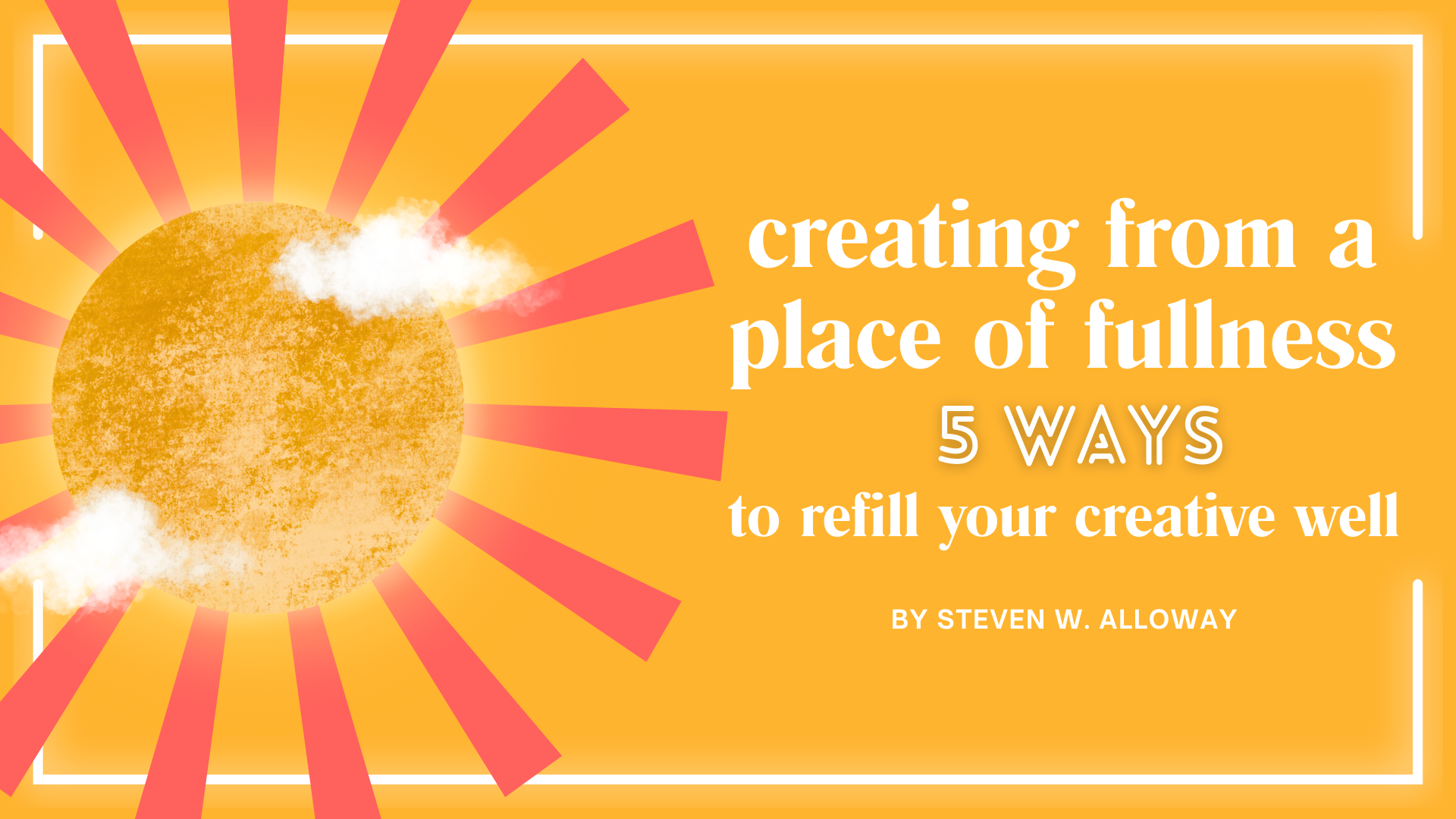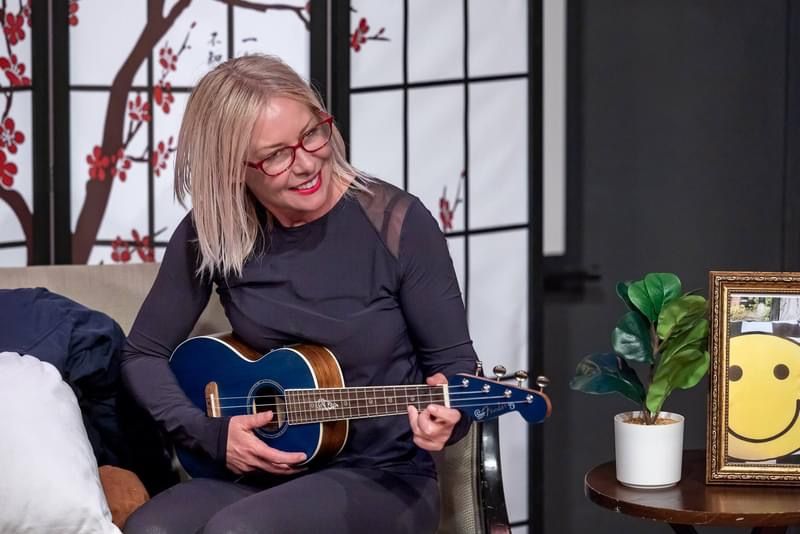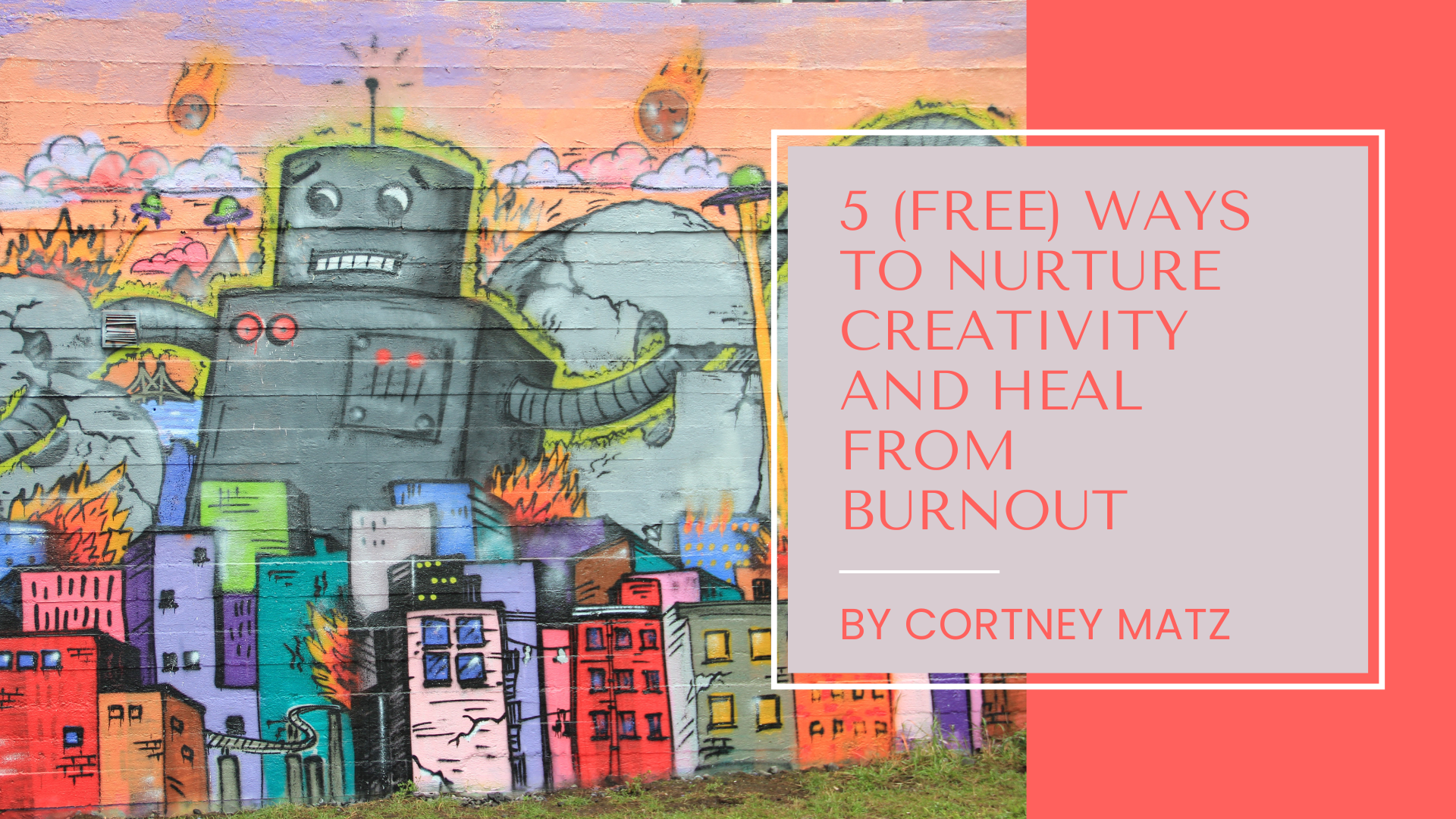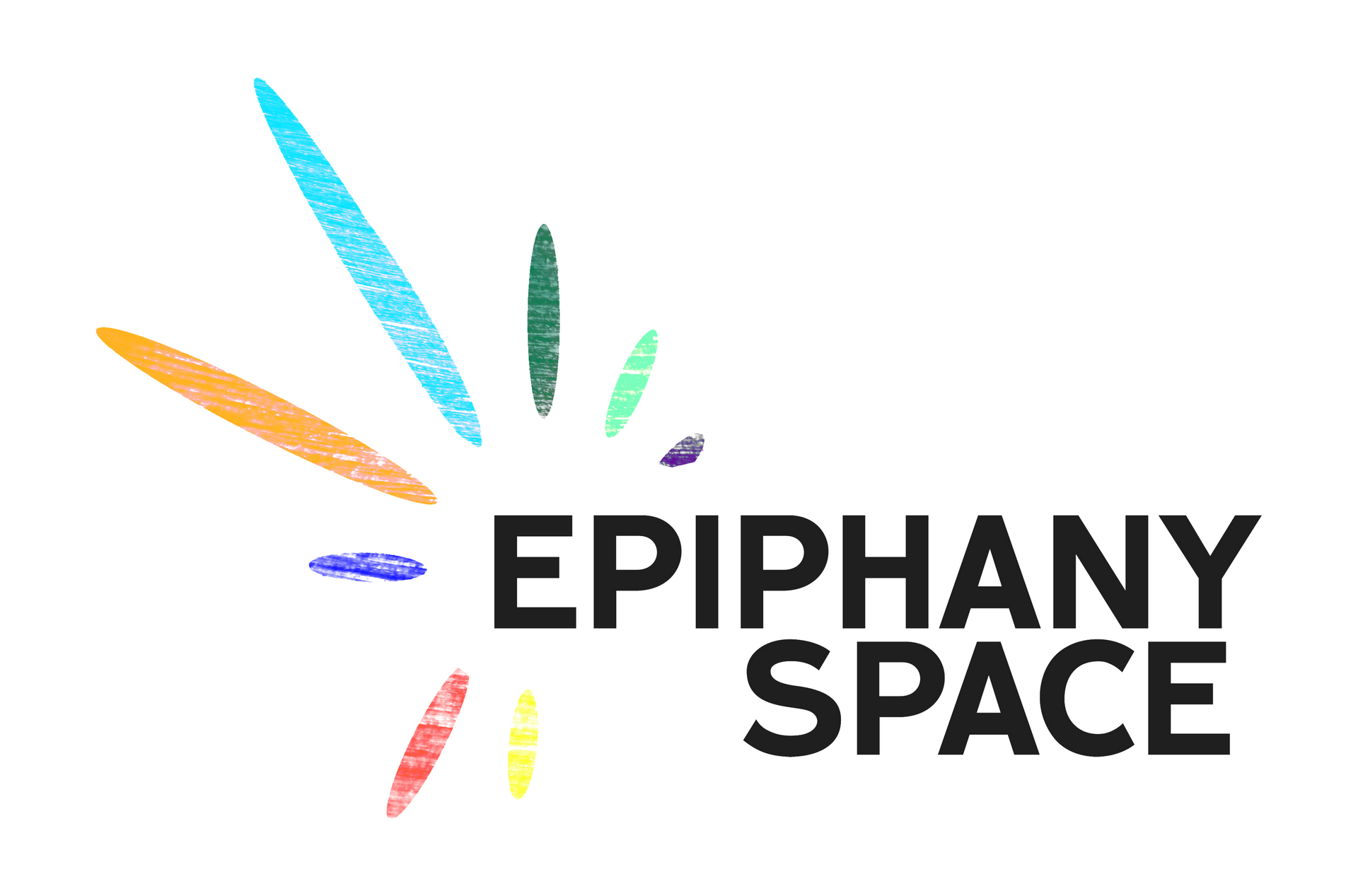Article
Accepting Help by Steven W. Alloway
Accepting Help
By Steven W. Alloway
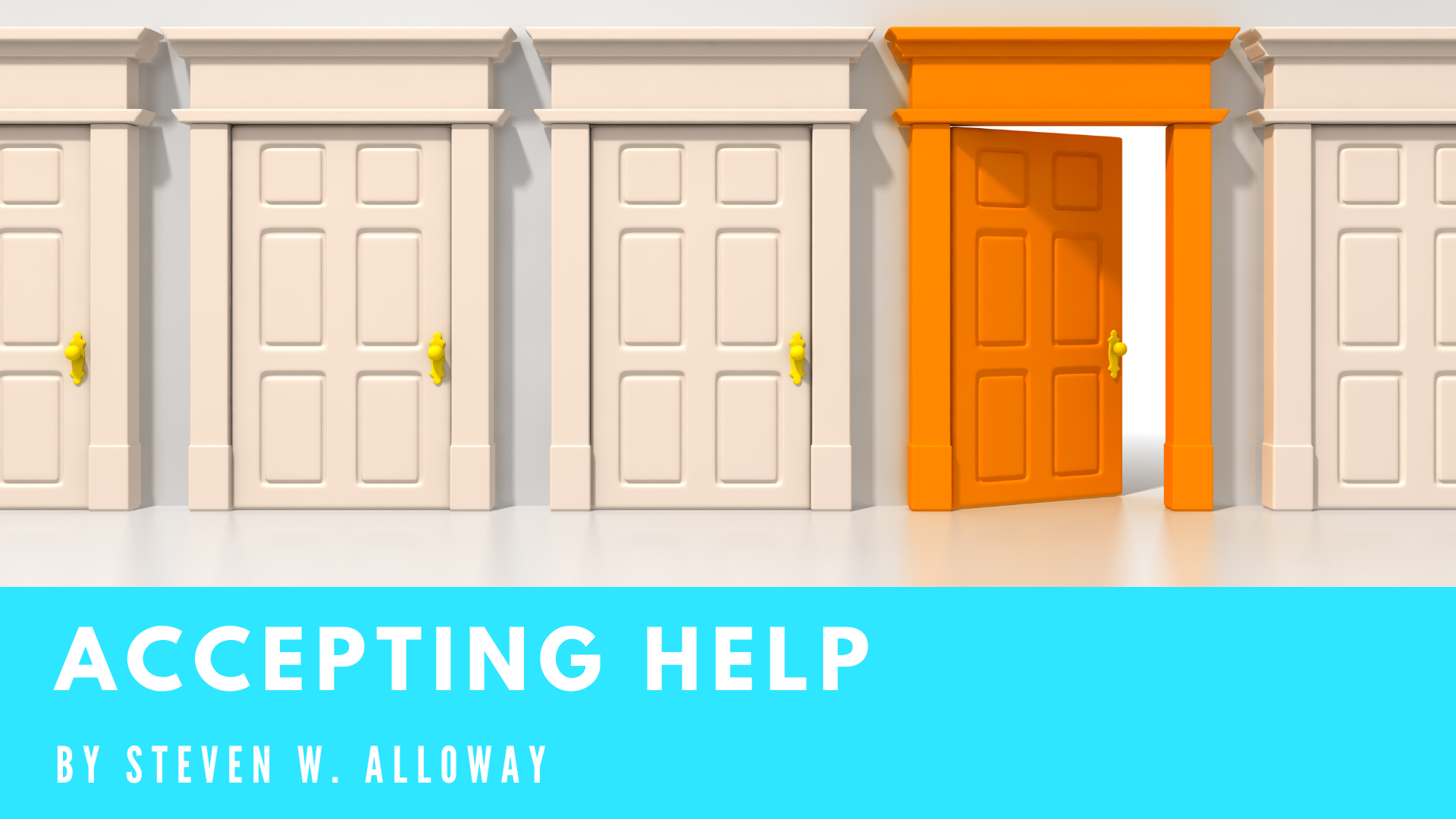
A few years ago, I saw a meme that went something like this:
“Baking Competition Show Idea: Like The Great British Bake Off, except each baker is paired with an excited toddler who really, really wants to help.”
The implication, of course, is that the toddler’s presence would be a constant hindrance to the baking process, their “help” would be more trouble than it was worth, and television-worthy shenanigans would ensue. Now, I admittedly have never baked around or with the help of toddlers. However, many years ago, I WAS the excited toddler who really wanted to help, whenever my mother would bake. And I still remember her very simple solution to this situation.
Walnuts.
Whenever she would bake chocolate chip cookies, my mother would measure out a cup or so of walnuts, then dump them out onto a plate. My brother and I were tasked with breaking them up into smaller, more manageable pieces and putting them back into the measuring cup. While we did that, my mother would assemble the rest of the cookie dough, explaining each step as she went along, so we knew what was going on. By the time she was done, we would be too, and the walnuts could go into the finished cookie dough, along with the chocolate chips.
My mother started baking cookies when she was not much more than an excited toddler herself. She knew (and I’m sure still knows) the Nestle Toll House Chocolate Chip Cookie recipe by heart, and I don’t doubt she was well-practiced in breaking up the walnuts on her own. But she still found ways to include us in the process and to let us help when we were so eager to do so, even though we didn’t yet possess the necessary knowledge or skills in baking.
In my last Spark article, I talked about having the courage to ask for help when we need it. But what if we don’t actually need the help—but there’s still someone offering it? It doesn’t necessarily have to be an excited toddler. It could be a fully capable adult, who does have skills in the area of our project—just not ones that we necessarily need to make use of at the moment.
What should we do? How do we accept help that we don’t need? SHOULD we accept it? For a lot of people, myself included, when someone asks us, “Is there anything I can do to help?” our first instinct is to say, “Thank you, but no.” But often, we don’t actually take the time to think about it first. “No” is our automatic response. Someone just offered to take some of the burden off of us. Why are we so quick to turn them down? Let’s look at some of the possible reasons—which can in turn help us understand how better to accept the help people want to give us.
We Don’t Think They’re Serious
This one is unfortunately true a lot of the time. Especially when people hear you complain or vent about something you can’t do or don’t have, they’ll say, “Oh, is there anything I can do to help?” People say it just to be polite, or to sympathize with your problems. They’re not expecting you to take them up on your offer—and so you don’t.
Except that some people DO want to help. They’re not just being polite—it’s a genuine offer. And if you just dismiss any offer of help because you don’t know if it’s serious or not, you could end up missing out on a lot of potential help from any number of unlikely places.
So how do you determine if an offer of help is genuine? First, instead of automatically saying, “No,” try feeling it out a little. Turn it back to them.
“Let me know if you need any help!”
“Oh, what kind of help were you thinking of? What would you like to do? Did you have anything in mind?”
They may have some specific skill they’d be willing to provide, an area of interest or expertise that would be helpful to you in your endeavors.
Or, more likely, they’ll turn it right back to you and say, “Just whatever you may need. Let me know.” This may be a brush off, their way of telling you that they were, in fact, just being polite. But it might not be.
Continue feeling things out. Talk about the various things you’re working on, the areas that might require assistance, the things you might need. Give them some options. If they continue to be noncommittal, then just leave it. But if something sparks their interest, talk to them about next steps and see about getting them on board to help. Maybe they’ll still flake out. But if they do, you’re no worse off than you were before.
Either way, though, communication is vital. You need to make sure everyone is on the same page in terms of the help that’s needed versus the help being offered. I’ve run into this any number of times.
When I offer help, it’s always genuine. When I ask, “Is there anything I can do?” I’m not only willing to lend a hand, I’m actually hoping you’ll have something for me to do. Yeah, I’m still the excited toddler, deep down. But I try to be careful and conscientious about it. If I’m not prepared to jump on board and provide help, I won’t offer. Of course, that doesn’t mean I don’t still run into problems.
A couple of years ago, some friends of mine were putting on a big event, for which they needed creative people of all types: writers, actors, bakers, puppeteers… Basically all the stuff that I love to do. I was eager to get on board. So I talked to the person coordinating volunteers—who was someone I didn’t know. I introduced myself, we talked for a bit, and I told him, “I’d love to help out with this project in any way I can!”
“Excellent!” he told me. “We could use you as event security!”
And suddenly it became clear that we were not on the same page—or even in the same chapter. What I meant when I said, “I’d like to help,” and what he heard, were two very different things. This is one of the things that makes negotiating help—either giving it or receiving it—such a precarious proposition at times. But with clear communication, these issues become less likely. Again, if their ideas and yours aren’t aligned, you’re no worse off than you were before—as long as you figure it out up front.
We Can’t Think of Anything
Especially when someone offers help out of the blue, we might not know what to tell them. We’re caught off guard, so even if there are a hundred different things that could benefit from some assistance, we can’t think of them in the moment, and so we just say, “No.”
It helps, in these instances, when you’re working on a project, to put together a list at the beginning, of, “Things We Need.” Then, add to it as more things arise and cross things off as you get them. It’s great for organization, and it can help keep you from being caught off guard. Someone wants to help? Here are the ways they can help. Are any of those things within their wheelhouse?
Or maybe it’s not for a specific project. Maybe it’s just a general offer of help. Since there’s no specific goal, there’s no list of needs, and you do end up caught off guard. And when you’re caught off guard and can’t think of anything, the instinct is just to say, “No.” But train yourself not to. Instead, take a step back, and take some time and think about it. Get contact information from the person offering to help you, if you don’t have it already, and take a day or two to figure out what role they could play in your creative endeavors.
This is also another instance in which communication is essential: talking to the person offering to help, to find out who they are, what their strengths are, and what kinds of things they’re looking to do. While you’re taking your time to think things through, bounce some ideas off of them and see if it sparks any ideas for them. Even if you don’t know what you could use them for, maybe they do—or maybe you can figure it out together.
We Actually Don’t Need Any Help
As I said in my last article—and in most of my articles—you always need some help. We don’t do anything entirely on our own. But maybe you’re fortunate enough to have all of your bases covered at the moment. You have people assigned to each of the tasks you need done. All the items on your list are crossed off, and there are no more to be added. The things you’re doing yourself aren’t just because you have to, but because you genuinely want to. You have all the help you need.
First of all, count yourself lucky. This is a very rare and enviable position to be in. Second of all… Find something for them to do anyway. Find them some metaphorical walnuts to break up. There’s always something, if you look hard enough.
Because here’s the thing: the offer might not be about you. It might be about them. They may not be offering because you look like you need something, but because they want to be part of what you’re doing, in any way they can. It’s not about the task. It’s about making the connection. And connections are something we could always use more of.
If you can find something for them to do, however small, then next time, maybe there will be something bigger for them to do. Then once they’re established, once they’ve secured that foothold, there could be all sorts of other opportunities to work together, to help each other, to collaborate. If you accept help now, even if you don’t need it, then maybe next time you ARE looking for help, you won’t have to look as hard.
Maybe they don’t have the necessary skills or experience to help you out with what you need. But maybe there’s somebody they could assist, in order to gain the skills and experience. As an excited toddler, I wanted to help, but there wasn’t a whole lot I could do yet. Over time, though, I learned more about the process and got so I could do more and more. Now I bake all sorts of cool and exciting things. And it all started with walnuts.
share this
Related Articles
Related Articles
